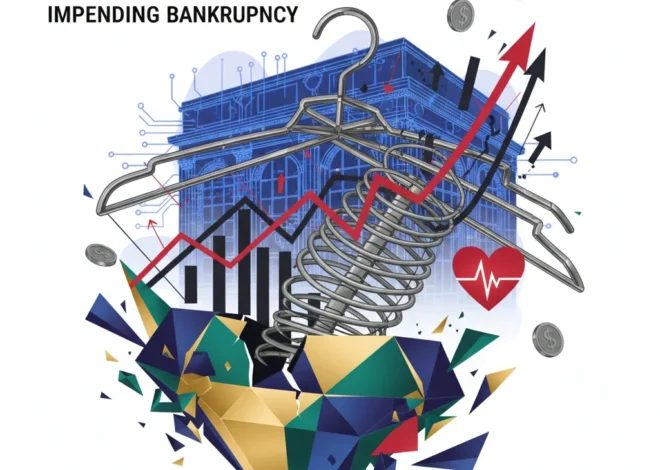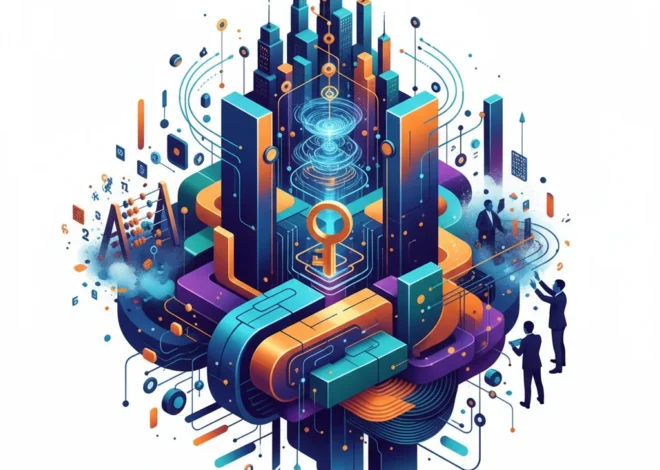
The Great Reskilling: Why AI Is Erasing Millions of UK Jobs Faster Than You Think
We’ve all heard the whispers, the conference keynotes, and the late-night news segments: “AI is coming for our jobs.” For a long time, it felt like a distant, abstract threat—something for the next generation to worry about. But a recent, eye-opening study has thrown a bucket of cold water on that comforting illusion. The future is here, it’s happening now, and it’s moving much, much faster than anyone predicted.
A comprehensive analysis of the UK labour market has revealed a startling trend: demand for staff in roles once considered stable, such as sales, customer service, and administration, is in a steep decline. We’re not talking about a gentle slope; we’re talking about a cliff edge. According to research highlighted by the Financial Times, this downturn is happening at an accelerated rate, with millions of so-called “low-skilled” jobs under immediate threat. And a primary catalyst for this seismic shift? You guessed it: artificial intelligence.
This isn’t just another headline. It’s a fundamental restructuring of our economy, and it has profound implications for everyone—from the employee on the front lines to the tech professionals building the future, and the entrepreneurs looking for the next big opportunity.
The Automation Tsunami: Which Jobs Are on the Front Line?
For decades, automation was about mechanical arms in a factory. Today, it’s about intelligent software, sophisticated algorithms, and the power of the cloud. The jobs being impacted now are not on the factory floor, but in the open-plan office. They are the roles that involve repetitive, predictable, and data-centric tasks.
The study points to a sharp drop in demand for roles that were the bedrock of the service economy. Think about it:
- Customer Service: AI-powered chatbots now handle the majority of first-line support queries, 24/7, without needing a coffee break. They can access a customer’s entire history in a microsecond and provide instant, accurate answers.
- Sales Development: Automated outreach platforms can send thousands of personalized emails, track engagement, and even schedule meetings, tasks that once required entire teams of junior salespeople.
- Administrative & Secretarial Work: AI assistants can manage calendars, transcribe meetings, book travel, and process invoices with flawless efficiency.
This isn’t a theoretical exercise. The data shows that the number of people employed in these secretarial and administrative roles has fallen by hundreds of thousands in recent years (source). The reason this is happening so quickly is the accessibility of powerful technology. Thanks to SaaS (Software as a Service) models, even small startups can afford to deploy enterprise-grade automation and machine learning tools that were once the exclusive domain of tech giants.
Brain Fog in the Cloud: How a BBC Host’s On-Air Moment Exposes a Crisis in Tech
Visualizing the Shift: From Human Tasks to AI Solutions
To understand the scale of this transformation, it’s helpful to see a direct comparison of traditional job functions and their modern AI-driven counterparts. This isn’t about AI “helping” a human; it’s about it replacing the core function entirely.
| Vulnerable Job Sector | Traditional Core Tasks | Dominant AI & Automation Technology |
|---|---|---|
| Customer Service & Support | Answering FAQs, routing calls, processing returns, handling basic inquiries. | Generative AI Chatbots (e.g., Intercom, Zendesk AI), Automated IVR Systems, AI-powered ticket categorization. |
| Sales & Lead Generation | Cold calling, data entry into CRM, sending follow-up emails, lead qualification. | Automated Sales Outreach Software (e.g., Outreach.io), AI-powered CRMs (e.g., Salesforce Einstein), Predictive Lead Scoring. |
| Administrative & Office Support | Scheduling meetings, data entry, transcribing notes, managing expenses, basic bookkeeping. | AI Virtual Assistants (e.g., Microsoft Copilot), Robotic Process Automation (RPA) for data tasks, OCR for invoice processing. |
| Entry-Level Data Analysis | Compiling reports, creating basic charts, cleaning spreadsheets. | Business Intelligence (BI) Tools with AI (e.g., Tableau, Power BI), Natural Language Querying, Automated Reporting Software. |
The table above makes it clear: the skills that were once a safe bet for a stable career are now being commoditized by code. And the pace of this innovation is only set to increase.
What strikes me most about this report is the speed. We’ve gone from basic chatbots that could barely understand a sentence to sophisticated generative AI that can write empathetic emails and debug code in just a few years. This isn’t a linear progression; it’s an exponential one. The danger is that society, education, and government policy are all operating on a linear timescale. This disconnect is the real crisis we need to address. This isn’t just about job loss; it’s about a potential explosion in skills mismatch and societal inequality if we don’t act decisively.
The Flip Side: A Golden Age for Tech and Innovation?
While the headlines paint a grim picture of job losses, they only tell half the story. Every technological revolution that displaces one set of jobs creates a new, often more complex and higher-paying, set of roles. This AI revolution is no different. For developers, tech professionals, and entrepreneurs, this disruption is a once-in-a-generation opportunity.
The very force causing this disruption—artificial intelligence—is also creating a surge in demand for new expertise. The UK’s labour market isn’t just shrinking in some areas; it’s booming in others. The number of technology-focused jobs has reportedly surged by 45% since 2021 (source). This is where the future lies.
The New In-Demand Roles
As businesses rush to integrate AI, they are desperately seeking talent in areas like:
- AI/ML Engineers: The architects building the models and systems that power this revolution. Strong programming skills in languages like Python are non-negotiable.
- Data Scientists & Analysts: AI is useless without clean, well-structured data. These professionals are the key to unlocking its potential.
- Cloud Architects: The entire AI ecosystem runs on scalable cloud infrastructure. Experts who can design and manage these systems are invaluable.
- Cybersecurity Specialists: As companies connect powerful AI systems to sensitive data, the attack surface expands exponentially. Robust cybersecurity isn’t a feature; it’s a prerequisite for survival.
- Prompt Engineers & AI Product Managers: A new class of professional is emerging who can effectively “speak” to AI models and integrate them thoughtfully into products and workflows.
The UK's Risky Gamble: Will Banning Ransomware Payments Save Us or Sink Us?
The Startup Gold Rush
For entrepreneurs, this is a greenfield moment. The disruption creates countless problems waiting for a solution. The next billion-dollar startups will be those that:
- Build the “Picks and Shovels”: Create user-friendly SaaS platforms that allow non-technical businesses to leverage complex AI and automation.
- Focus on Niche AI Solutions: Develop highly-trained AI for specific industries, like legal contract analysis, medical diagnostics, or construction project management.
- Pioneer Reskilling and Education: Create platforms to help the displaced workforce transition into the new tech-centric roles. The “Great Reskilling” will be a massive market.
- Solve the AI Safety & Ethics Puzzle: As AI becomes more powerful, companies dedicated to ensuring its ethical, unbiased, and secure implementation will be critical.
The £20,000 Gadget That Hijacks Your Car: A Deep Dive into the Cybersecurity Arms Race
Navigating the Transition: Your Action Plan
The conclusion is inescapable: the world of work is being rewritten in real-time. Standing still is not an option. Whether you’re an individual planning your career, a developer looking to stay relevant, or a business leader setting a strategy, the path forward requires proactive adaptation.
For Individuals: Embrace lifelong learning. The skills that got you here won’t get you there. Focus on developing capabilities that AI can’t easily replicate: critical thinking, creativity, complex problem-solving, and emotional intelligence. If you’re in a vulnerable role, start exploring pathways into tech, data analysis, or digital marketing now.
For Tech Professionals: Don’t rest on your laurels. Your programming language of choice today might be obsolete tomorrow. The most valuable skill is the ability to learn and adapt quickly. Specialize in high-growth areas like machine learning operations (MLOps), large language model (LLM) integration, and robust cybersecurity for AI systems.
For Businesses & Startups: View AI not as a simple cost-cutting tool, but as a transformational force for innovation. How can you use it to create entirely new products, services, and customer experiences? Your biggest competitive advantage will be your ability to integrate human talent and artificial intelligence into a cohesive, creative, and efficient whole.
The tectonic plates of the labour market are shifting beneath our feet. While the tremors are causing anxiety and displacement for many, they are also revealing rich new veins of opportunity for those prepared to dig. The future doesn’t belong to those who fear automation; it belongs to those who build, manage, and master it.


